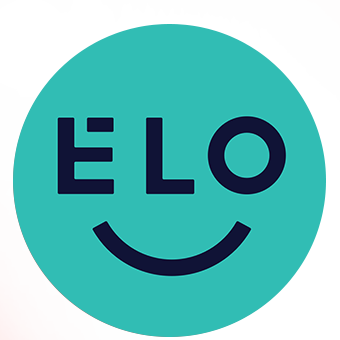Finding the Right Mentor Early in Your Career: The Key to Professional Success
Mentorship is a true career accelerator that plays a crucial role in the professional and personal development of young talents. But how do you find that rare gem — the mentor who will guide and inspire you? Here are some insightful tips to help you in this vital search.
Define Your Goals: The Framework for a Successful Mentorship Relationship
Before seeking a mentor, take the time to clarify your professional aspirations. What are your short, medium, and long-term goals? What skills do you want to develop? By clearly defining your expectations, you’ll be able to identify the ideal mentor profile — someone who can offer you concrete and personalized support.
To do this, the SMART method is a valuable tool. It helps you formulate goals that are Specific, Measurable, Achievable, Realistic, and Time-bound. For example, “obtaining a promotion to a higher level within one year” is a SMART goal that can guide your search for a mentor.
What is the SMART Method?
The SMART method is a proven technique for setting clear and achievable goals. Here’s what it means:
- Specific: The expected result is simple and clearly defined. For example, instead of saying “I want to succeed in my career,” a specific goal would be “I want to get a promotion within the next 12 months.”
- Measurable: It includes indicators that make it quantifiable, allowing you to measure progress. For instance, you might track the number of successful projects or positive performance reviews.
- Achievable: The goal should be ambitious but realistic, pushing you out of your comfort zone without being unattainable.
- Realistic: It takes into account constraints like available resources, time, and necessary skills.
- Time-bound: It specifies a precise timeframe in which the goal will be achieved.
Example: Marie, a young professional, decided to use the SMART method to set her career goal. She aims to become a manager within two years. She has outlined a specific plan to acquire the necessary skills, regularly measures her progress, and sets realistic milestones to reach this goal. Thanks to this approach, she is well on her way to achieving her ambition.
The Qualities of a Good Mentor: A Blend of Inspiration and Complementarity
A good mentor is, above all, a source of inspiration — someone whose career path and values you admire, and who motivates you to follow in their footsteps. However, it’s not about finding a clone of yourself! Your mentor should also be able to challenge you, push you out of your comfort zone, and open you up to new perspectives.
Experience is another key criterion. Opt for a mentor who has already achieved the goals you’re pursuing, as they can share their experiences and valuable advice with you. Finally, qualities such as trust, kindness, active listening, humility, generosity, transparency, and confidentiality are all crucial for a successful mentoring relationship.
How to Find Your Mentor: Dare to Ask!
If you’ve already identified someone in your professional circle who meets these criteria, don’t hesitate to ask them directly to become your mentor. Explain why you have chosen them and what you expect from this relationship. You might be surprised at how many people are willing to share their experience and support young talents.
Where to Find a Mentor?
If you haven’t yet found your ideal mentor, several options are available:
- Activate Your Professional Network: Talk about your search with colleagues, friends, and professional contacts. They may be able to recommend suitable individuals.
- Participate in a Structured Mentorship Program: Many companies, professional associations, and chambers of commerce offer mentorship programs. For instance, your employer’s mentoring program could be a great starting point.
- Explore Online Mentorship Platforms: Platforms such as Elo Mentorat or Academos can connect you with mentors who match your needs.
Example Approach for Requesting Mentorship
Hello [Name],
I hope this message finds you well. I am reaching out because I greatly admire your professional journey, and I believe your experiences could significantly benefit my career development. I am currently [your current position] at [your company] and am looking to advance in [your field].
I would be honored to have the opportunity to discuss the possibility of establishing a mentorship relationship with you. I am confident that your guidance would be invaluable in helping me achieve my goals.
Would you be available for a coffee or a call at your convenience to discuss this further?
Thank you in advance for considering my request. I look forward to the opportunity to learn from you.
Best regards,
[Your Name]
First Meeting: A Coffee to Break the Ice
Once contact is established, suggest an informal meeting with your potential mentor, such as over coffee. Use this opportunity to discuss your goals, expectations, and gather initial advice. If the conversation goes well and you feel comfortable, don’t hesitate to propose formalizing the relationship and scheduling regular meetings to discuss your progress and challenges.
Mentorship is a rewarding human experience that can transform your career. By following these tips, you’ll increase your chances of finding the ideal mentor and building a lasting, beneficial relationship for your professional development.
Book Recommendation to Deepen Your Reflection
To gain a deeper understanding of how and why to find a mentor and how to take action, Catherine Légaré, President of Elo Mentorat and a mentoring expert, recommends the book:
“One minute mentoring: How to find and work with a mentor, and why you’ll benefit from being one”
This engaging essay on mentorship and career ambitions reads like a novel! The authors offer a practical guide for developing an effective and supportive mentoring relationship. The book follows the mentoring journey of two individuals: a somewhat lost young sales professional and a successful business development director. Both will grow through the mentoring relationship they build and develop together.
I suggest this book as a natural follow-up to this blog article. You can explore the book here: The mentoring minute.
